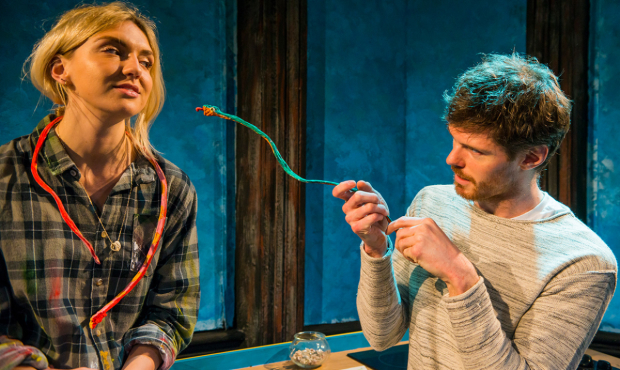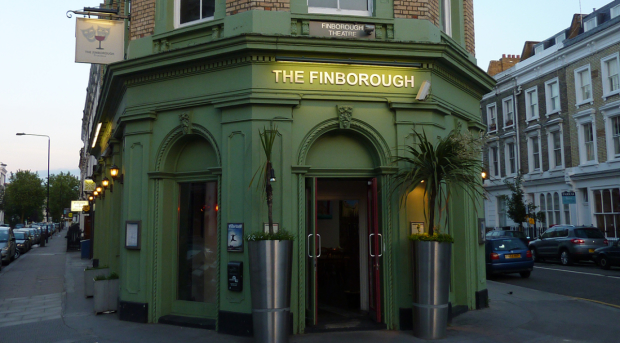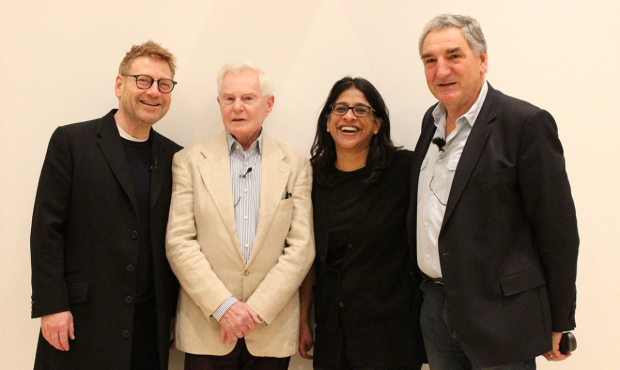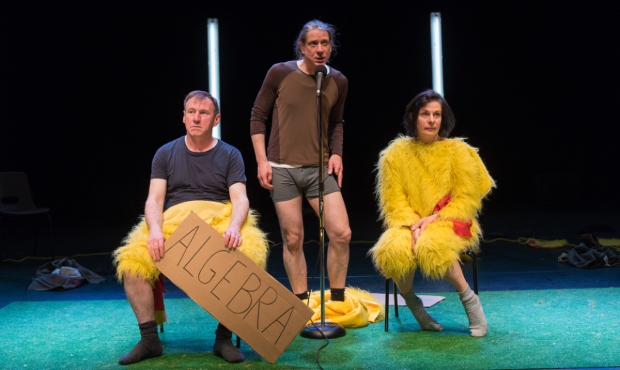Review: Returning to Haifa (Finborough Theatre)
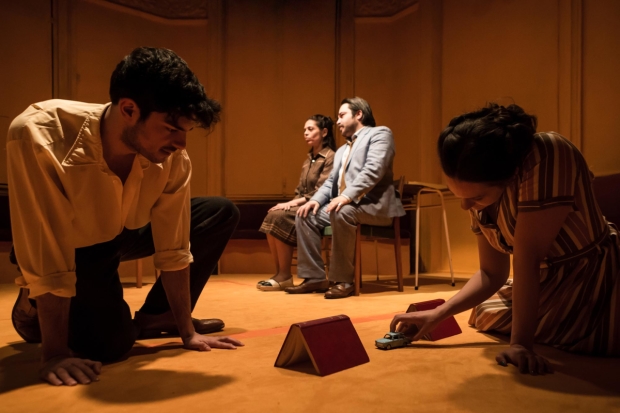
© Scott Rylander 2018
A curtain hangs across the middle of the theatre, the same saffron yellow as the rest of the room: walls, carpet and doors. It splits the space in two, dividing actors and obstructing our view. Yet even when it’s pulled back – curious this – it’s still somehow there: an invisible line left behind; the ghost of a scar. Actors seem to stand on this side or that. It still shapes what we see. Even temporary borders change the landscape for good.
So it is in Haifa, a city occupied by Israeli forces in 1948. Most of its Palestinian population was, effectively, evicted. The homes they left behind were handed over to European Jews resettling under the Law of Return. For 20 years, the city closed its gates to those it turfed out. A temporary border; a permanent change.
Ghassan Kanafani’s novella, adapted for the stage by the Beirut-born playwright Ismail Khalidi and Britain’s own Naomi Wallace, imagines a Palestinian couple returning to the city they called – still call – home 20 years after they fled for their lives. As Haganah’s tanks rolled into Haifa, Safiyya and Said abandoned their home with such haste that they left their infant son behind with their possessions. Their homecoming is as tinged with nostalgia as it is tainted by grief.
Returning is an uncanny experience: old streets with new names; the same city, but not. They count out the steps – eight, nine, ten – to their door, noticing a new bell and a different shade of paint on the walls. Inside, a new owner: Miriam (Marlene Sidaway), a Polish Jew, who lost her father at Auschwitz and her brother at gunpoint. Inside: their possessions, more or less as they left them. Inside: their adult son.
Kanafani’s story distils the issue of Israel down to a human scale and, oof, does it draw out the tangled emotions. This is the story of a contested home, one with two rightful owners staking a claim, and of a contested son, born to Palestinian parents, raised as a Jew. Kai Ethan’s Haldoon has grown up as Dov – and joined the Israeli army as an adult. It’s an eloquent expression of the way history hardens: a generation with a shared sense of Israel’s duality and of displacement gives way to one raised in and defined by a singular nation state.
Past and present intermingle in Khalidi and Wallace’s adaptation, which refuses narrative clarity for the fuzzy, woozy quality of memory and uncertainty as it flashes back and forth in time. Leila Ayad and Ethan Kai make a sunny young couple on the cusp of catastrophe and, by casting Syrian Ammar Haj Ahmad and Belgian-Moroccan Myriam Acharki as their older selves, McLeod artfully suggests Safiyya and Said become outsiders in their own home. While more stillness would generate more of a charge, both of them summon and suppress the dizzying emotions of re-finding a home and losing a son. It’s as quietly shattering as it is gently complex.
But it’s Rosie Elnile’s design that does most of the work – an exceptional example of thinking through space. Flooding the space with colour, as she did with The Unknown Island at the Gate, she turns place into feeling – the yellow of home. Yet, even that colour itself is contested; either the saffron the couple left behind or the mimosa they find in its place; or maybe even a mix of the two. Orange tiles embedded into the carpet suggest both an abstract floorplan and excavated ruins and, just by moving a few bits of furniture – a table, some chairs – Elnile completely reshapes the space. At a moment when borders and barriers are hardening, Returning to Haifa‘s a reminder that once a curtain comes down, it can’t just be re-opened.
Returning to Haifa runs at the Finborough Theatre until 24 March.



